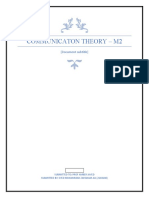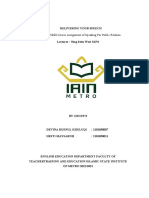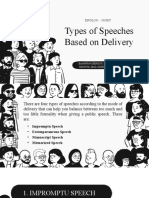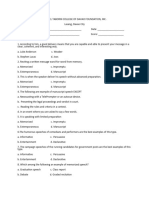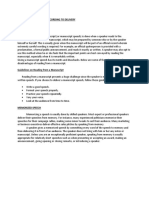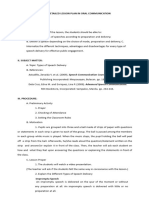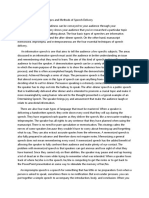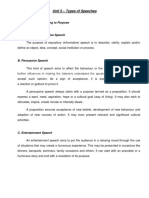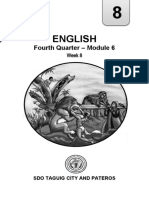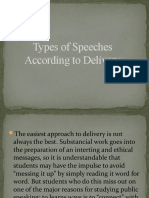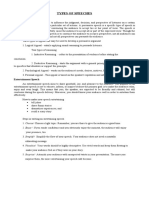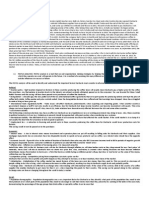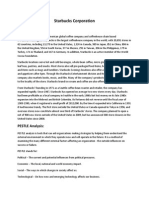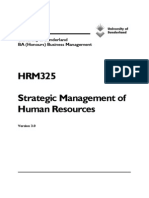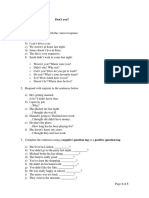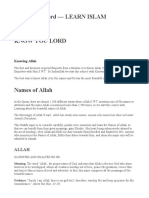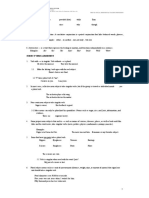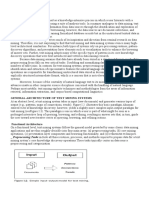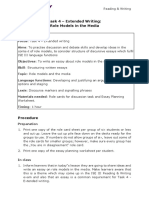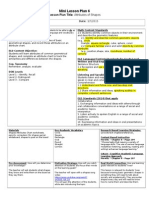0% found this document useful (0 votes)
197 views2 pagesSpeech Delivery Methods Guide
The document describes four methods of delivering speeches:
1. Extemporaneous speech is an informative or persuasive speech modeled after a 5 paragraph essay that incorporates research and opinion without reading from a script.
2. Manuscript speech involves reading a pre-written speech verbatim from a printed document or teleprompter, allowing for precise messaging especially in time-constrained situations.
3. Memorized speech is recited from memory without notes or cue cards, allowing for gestures and eye contact but risking forgetting the speech.
4. Impromptu speech is delivered without prior preparation on the topic, requiring quick thinking but risking less organization.
Uploaded by
Yanah FlojoCopyright
© © All Rights Reserved
We take content rights seriously. If you suspect this is your content, claim it here.
Available Formats
Download as DOCX, PDF, TXT or read online on Scribd
0% found this document useful (0 votes)
197 views2 pagesSpeech Delivery Methods Guide
The document describes four methods of delivering speeches:
1. Extemporaneous speech is an informative or persuasive speech modeled after a 5 paragraph essay that incorporates research and opinion without reading from a script.
2. Manuscript speech involves reading a pre-written speech verbatim from a printed document or teleprompter, allowing for precise messaging especially in time-constrained situations.
3. Memorized speech is recited from memory without notes or cue cards, allowing for gestures and eye contact but risking forgetting the speech.
4. Impromptu speech is delivered without prior preparation on the topic, requiring quick thinking but risking less organization.
Uploaded by
Yanah FlojoCopyright
© © All Rights Reserved
We take content rights seriously. If you suspect this is your content, claim it here.
Available Formats
Download as DOCX, PDF, TXT or read online on Scribd
/ 2










